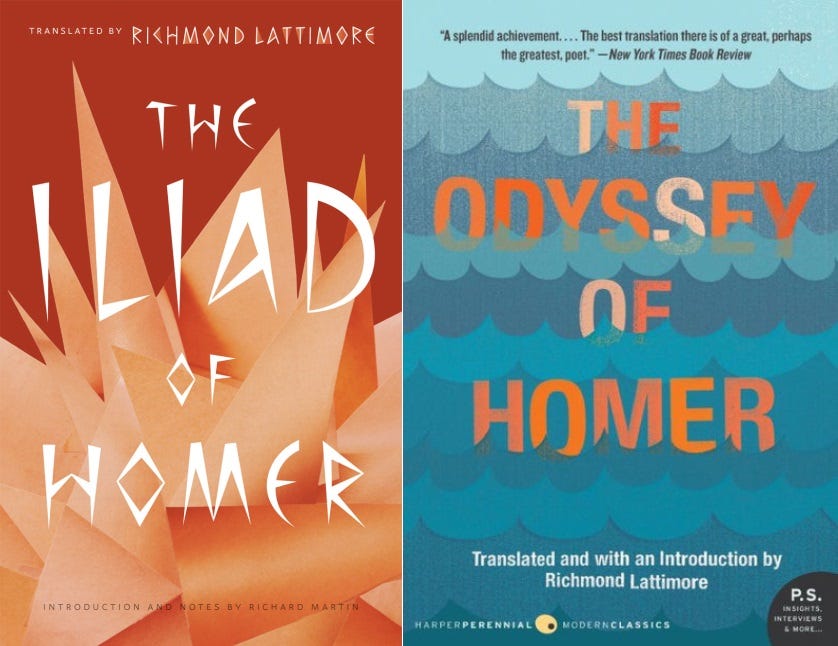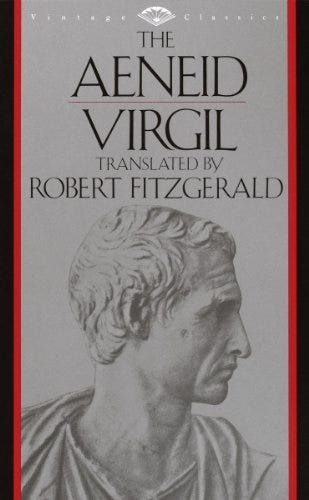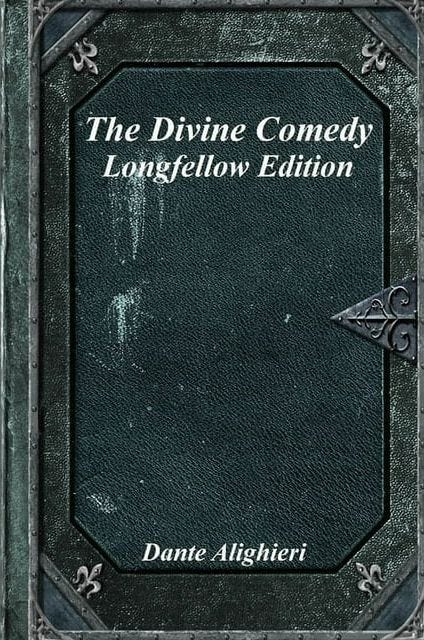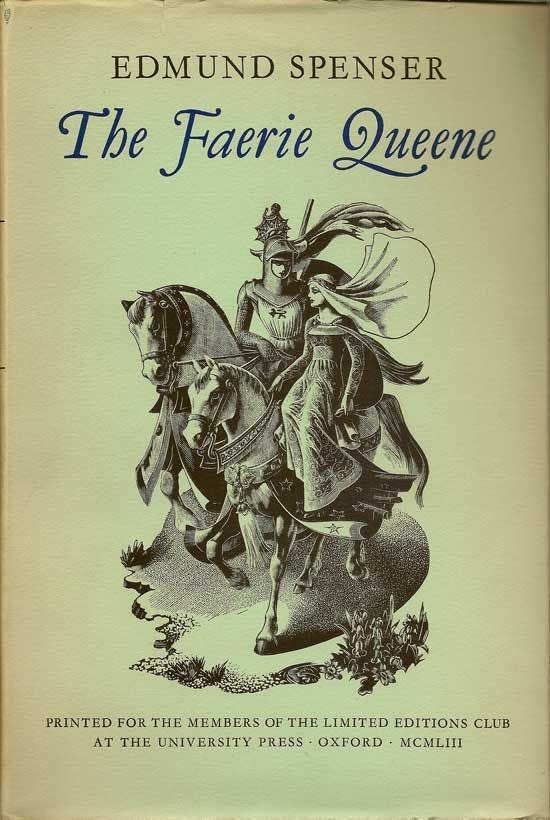10 Books for the Classical Imagination, Pt. 1
Some More Thoughts After 15 Years in the Classroom
This is the second part of my “Top Ten” series on books for Classical Education. If you’d like to read the previous entries before diving in here, they are listed below:
“10 Books on Classical Education, Pt. 1”
“10 Books on Classical Education, Pt. 2”
Russell Kirk said, “The moral imagination is an enduring source of inspiration that elevates us to first principles as it guides us upwards towards virtue and wisdom and redemption.”1 I consider this one of the essential, though often unspoken tenets, of the Classical Canon. Schools ask students to read more than history, modern fiction, and textbooks. They ask them to engage the imagination of the past through poetry, myths, and much more (in addition to history, modern fiction, etc.). To build off my previous list of pedagogical works, I’d like to suggest the following books are essential to the development of the moral imagination that every adult and child affiliated with a classical education should pursue. These are undoubtedly challenging reads, but I am confident that C. S. Lewis was right when he argued that reading primary texts is much easier than the experts sometimes suggest.2
The first five suggestions are all epic poems (of varying degrees; see Lewis’s distinctions of the types for more information).3 These are books that I would encourage folks to 1) make sure you have a good translation, and 2) read in community, either aloud or through an audiobook. That may seem a strange recommendation, but poetry of this sort has an oral quality to it that makes listening and reading a helpful exercise.
The Iliad and The Odyssey, Homer
This is arguably where a Classical education begins. I won’t linger too long on the merits of these works. If you’re uncertain of their worth, you should begin your inquiry by reading them. They are as close to the human experience in literature as can be imagined and are second only to the Bible in their breadth. There are a number of good translations out there of Homer’s duology, which I would argue really function as one story (something Cormac McCarthy imitated in his final publication, The Passenger and Stella Maris). I first came to love Homer through the Lattimore translations pictured above and continue to find them wonderful reads. Though I have also developed a love for Robert Fitzgerald’s translation, which is great because he also translated The Aeneid, giving a sense of completeness to reading his three epic translations.
The Aeneid, Virgil
As the Roman response to Homer’s argument in the previous entry, Virgil’s work has been derided as propaganda (a claim I disagree with) and hailed as surpassing the master (again, going farther than I would). Regardless, it is a work to be reckoned with and has much to say about the soul, the State, and the Divine. Translations abound, but for my money Fitzgerald’s translation is the best. My Latin is shaky at best so I cannot speak much to the debates around his rendering of certain phrases, but I don’t think any of that detracts from Fitzgerald’s poetic accomplishment. C. S. Lewis’s unfinished Aeneid is also well worth your time.
The Divine Comedy, Dante
Perhaps the only Medieval work that appears on every “best of” list, Dante’s trilogy is massive in size and scope. It is not an exaggeration to say that the whole of human life is contained in these pages. I first came to Dante through the Longfellow translation and continue to find it rewarding upon re-reading. Dorothy Sayers and Anthony Esolen also have excellent translations, and they will be sufficient for any reader, whereas the Longfellow might prove more challenging. But since my list is not long enough to allow for some of Longfellow’s own poetry, I shall emphasize his inclusion through his translation of Dante. Two birds with one stone, so to speak.
The Faerie Queen, Edmund Spenser
Spenser’s unfinished poem has become little more than an academic exercise in our culture, but I see hope on the horizon that it may one day be a part of vocabulary again thanks to classical classrooms. It is a decidedly English poem, which might seem unnecessary for an American audience, but I disagree. Spenser is diving deep into the tradition preceding him, drawing from Virgil and Dante explicitly, and saying something about virtue that can only be said poetically. Canon Press has helpfully been releasing edited editions of each book (Book 1, Book 2, and Book 3 so far), but I think it can be managed in its original form for most folks. And I think it’s important to read it all, which is a limitation for the Canon Press editions. Regardless of which edition you grab, you cannot miss by giving this one a try. It is easily the second most important poem in the English language.
Paradise Lost, John Milton
Milton is the only author on both my pedagogical and imaginative lists. That’s because if Spenser hits second on the “best English poems” list, Milton’s epic ranks first. A retelling of the Genesis 1-4 account, Milton is taking inspiration from Homer, Virgil, and Dante, crafting a poem that yields so much more than I think could be estimated. Debates continue about possible heresies in the book, though I remain unconvinced by such arguments. I think Milton’s poetic accomplishment is monumental here, and his ability to bring the whole of the Great Tradition together in this single work makes it of paramount importance for those interested in classical education.
I don’t know that anything on this list would receive much argument. But the bit that might receive push back, that these are works that every teacher ought to read regardless of grade level taught and that every administrator and parent should also be familiar with them, now that could be perceived as “pie in the sky.”
“Sure,” someone might say, “it would be great if everyone in our community read these, but that isn’t realistic.” To that, I reply, “then you should aim to be something more than realistic.” Perhaps what our Classical Christian communities need is less realism and more of the transcendentals.
I stand by my claim that everyone is qualified to read, understand, and benefit from these books. And no one should be told otherwise.
Russell Kirk. "The Moral Imagination." in Literature and Belief Vol. 1 (1981), 37–49. Also published in Reclaiming a Patrimony (Washington, DC: The Heritage Foundation, 1982), 45–58. Copyright © 1981 Russell Kirk, Renewed 2007 Annette Kirk. https://kirkcenter.org/imagination/the-moral-imagination/
C. S. Lewis, “On the Reading of Old Books,” in God in the Dock (Grand Rapids, MI: William B. Eerdmans Publishing Co., 1970), p. 200-201.
C. S. Lewis, A Preface to Paradise Lost (Oxford: Oxford University Press, 1942), p. 1-8. https://archive.org/details/dli.scoerat.1936aprefacetoparadiselost







